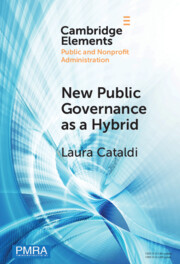332 results
Chapter 27 - Earthquakes and State Response at Antioch
- from Part V - Crises and Resilience
-
-
- Book:
- Antioch on the Orontes
- Print publication:
- 06 June 2024, pp 433-450
-
- Chapter
- Export citation
3 - The Authority to Punish
-
- Book:
- The Right to Punish
- Published online:
- 16 May 2024
- Print publication:
- 23 May 2024, pp 47-74
-
- Chapter
- Export citation
Chapter 22 - The Mansilla Siblings: A Story in Syntony
- from Part III - Literary Names
-
-
- Book:
- A History of Argentine Literature
- Published online:
- 09 May 2024
- Print publication:
- 16 May 2024, pp 338-355
-
- Chapter
- Export citation
Before Biodiversity: Trajectories of National Parks in Latin America (1930s–1980s)
-
- Journal:
- Latin American Research Review ,
- Published online by Cambridge University Press:
- 03 May 2024, pp. 1-20
-
- Article
-
- You have access
- Open access
- HTML
- Export citation
A Return to Khaki Rule? Democracy and Africa's Lost History of Military Government
-
- Journal:
- The Journal of African History , First View
- Published online by Cambridge University Press:
- 02 May 2024, pp. 1-7
-
- Article
-
- You have access
- Open access
- HTML
- Export citation
Beyond Expropriation Without Compensation
- from Introduction
-
-
- Book:
- Beyond Expropriation Without Compensation
- Published online:
- 28 March 2024
- Print publication:
- 04 April 2024, pp 3-32
-
- Chapter
-
- You have access
- Open access
- HTML
- Export citation
Chapter 11 - Buildings and the Political Economy of Theatre Financing in Britain
- from Part IV - Theatre and State
-
-
- Book:
- The Cambridge Companion to British Theatre since 1945
- Published online:
- 14 March 2024
- Print publication:
- 21 March 2024, pp 229-245
-
- Chapter
- Export citation
1 - Social Justice
-
-
- Book:
- Social Justice in Twentieth-Century Europe
- Published online:
- 29 February 2024
- Print publication:
- 07 March 2024, pp 1-29
-
- Chapter
- Export citation
Kant, the Nation-State, and Immigration
-
- Journal:
- Kantian Review , First View
- Published online by Cambridge University Press:
- 01 March 2024, pp. 1-17
-
- Article
- Export citation

New Public Governance as a Hybrid
- A Critical Interpretation
-
- Published online:
- 23 January 2024
- Print publication:
- 29 February 2024
-
- Element
- Export citation
6 - The State
- from Part I - The Colours of Power
-
- Book:
- Power and Inequality
- Published online:
- 04 January 2024
- Print publication:
- 18 January 2024, pp 123-156
-
- Chapter
- Export citation
Χλωρός in the Septuagint: Color or State?
-
- Journal:
- Harvard Theological Review / Volume 117 / Issue 2 / April 2024
- Published online by Cambridge University Press:
- 11 January 2024, pp. 204-227
- Print publication:
- April 2024
-
- Article
- Export citation
2 - Early Views on the Economic Role of the State
- from Part I - The Period until the Great Depression
-
- Book:
- Monitoring the State or the Market
- Published online:
- 07 December 2023
- Print publication:
- 21 December 2023, pp 10-16
-
- Chapter
- Export citation
6 - Obstacles to the Provision of Healthcare Services
- from Part II - Thematic Papers
-
-
- Book:
- Mozambique at a Fork in the Road
- Published online:
- 14 December 2023
- Print publication:
- 21 December 2023, pp 136-161
-
- Chapter
-
- You have access
- Open access
- HTML
- Export citation
Institutional Logics: Motivating Action and Overcoming Resistance to Change
-
- Journal:
- Management and Organization Review / Volume 19 / Issue 6 / December 2023
- Published online by Cambridge University Press:
- 01 December 2023, pp. 1152-1177
-
- Article
-
- You have access
- Open access
- HTML
- Export citation
5 - From Ignorance to Illegalisation
-
-
- Book:
- States of Ignorance
- Published online:
- 02 November 2023
- Print publication:
- 16 November 2023, pp 140-164
-
- Chapter
- Export citation
1 - States, Knowledge and Ignorance
-
-
- Book:
- States of Ignorance
- Published online:
- 02 November 2023
- Print publication:
- 16 November 2023, pp 33-58
-
- Chapter
- Export citation
Introduction
-
- Book:
- Royal Justice and the Making of the Tudor Commonwealth, 1485–1547
- Published online:
- 02 November 2023
- Print publication:
- 16 November 2023, pp 1-20
-
- Chapter
- Export citation
6 - Denial, Elucidation or Resignation? British and German State Responses to Unauthorised Migrants
-
-
- Book:
- States of Ignorance
- Published online:
- 02 November 2023
- Print publication:
- 16 November 2023, pp 165-186
-
- Chapter
- Export citation
3 - The Invention of Illegal Immigration
-
-
- Book:
- States of Ignorance
- Published online:
- 02 November 2023
- Print publication:
- 16 November 2023, pp 91-116
-
- Chapter
- Export citation



